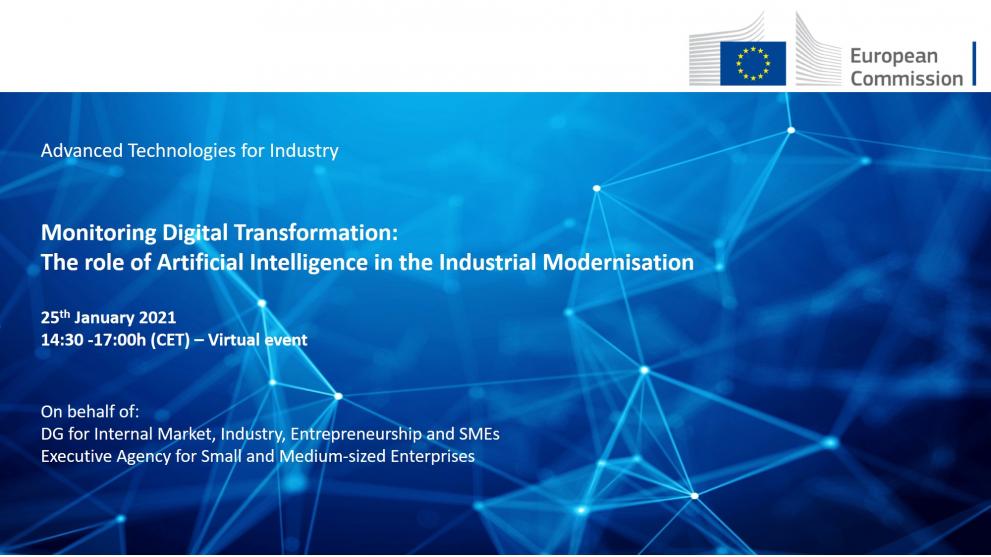Practical information
- When
- Where
- Online only
Description
Artificial intelligence has rapidly gained in importance and diffusion and is now beyond the nascent phase. This workshop will review in detail the demand and supply dynamics related to the AI pointing to the opportunities, most promising use cases and future potential arising from Artificial Intelligence.
AI’s potential in terms of future growth and socio-economic impacts is impressive. As a general-purpose technology, it is expected to be adopted in a variety of ways by all industries and by a multitude of actors. Indeed, the COVID-19 pandemic has underlined the centrality of AI (for example in contact tracing) in countering the disease. Nonetheless, the deployment of AI use cases is hindered by multiple challenges and implementation barriers. To reap concrete business opportunities, enterprises must be aware of these challenges and of the countermeasures that industry and policy makers are trying to implement in Europe.
After an introduction on ATI project with an overview of the main trends in AI, the workshop explored policies, initiatives and services that are being developed to foster AI adoption and the impact that those initiatives have on end users, especially SMEs.
Programme (14:30 – 17:00)
|
Time |
Session |
|
14.30 |
Welcome and introduction to the ATI project Marta Batalla Massana, Policy Officer at the Advanced Technologies, Clusters and Social economy unit , DG GROW |
|
14:35 |
Setting the scene Giorgio Micheletti, Consulting Director, IDC – ATI project: AI adoption and industry trends Lars De Nul, Policy Officer, Digital Technologies & Artificial Intelligence, Industry 5.0 Unit, DG RTD Evangelia Markidou, Head of Sector, Artificial Intelligence Technology, Development and Impact, DG CNECT Martin Ulbrich, Senior Expert at the Artificial Intelligence, Policy development and Coordination unit, DG CNECT |
|
15:20 |
Roundtable discussion Moderated by Giorgio Micheletti
|
|
16:20 |
Brainstorming discussion with Mural Through the help of a digital whiteboard, speakers and audience will brainstorm on further questions arising from the previous sessions. |
|
16:45 |
Closing |

